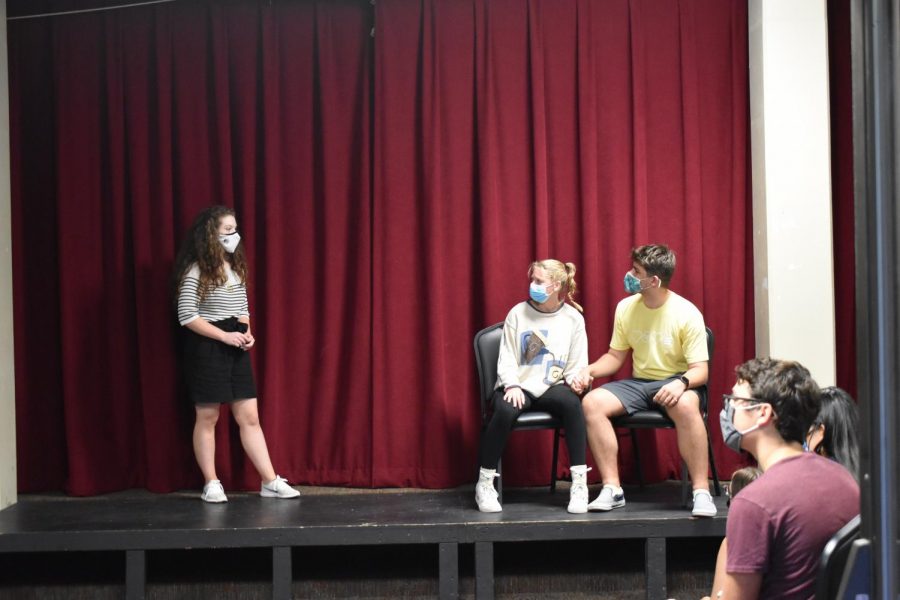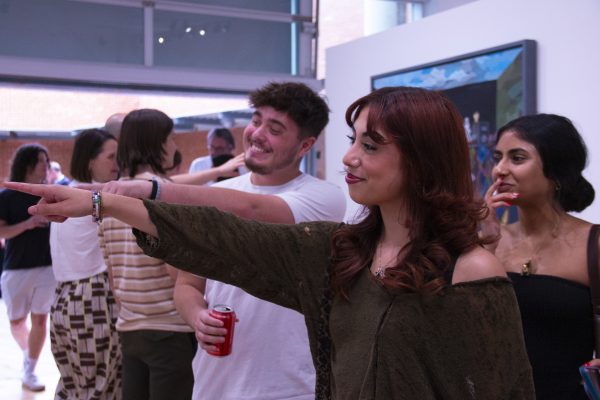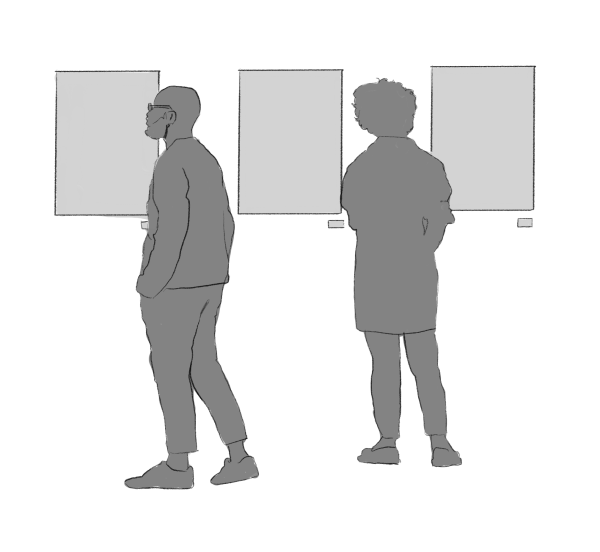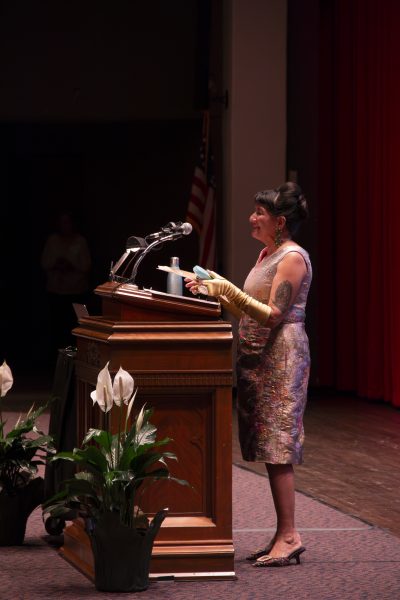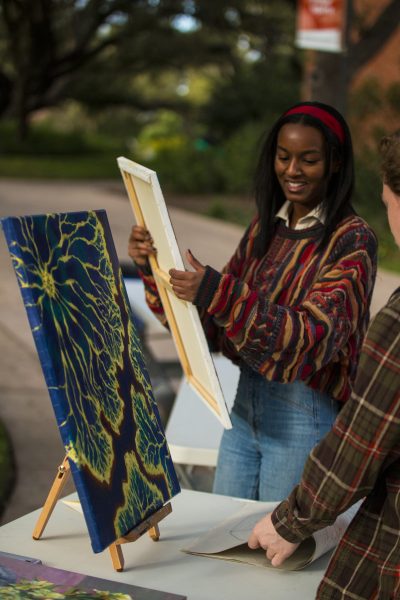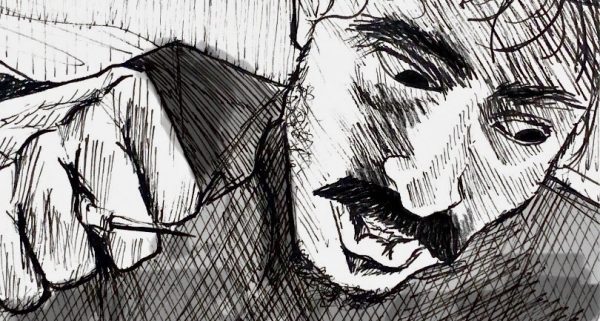Theatre back on-stage with physical audience following virtual semesters
“365 Days/365 Plays,” directed by professor Kyle Gillett, comes to stage on Oct. 1
Rachel Joseph, associate professor for theatre, is directing the department’s second show of the fall semester, “Silent Retreat.” In preparing for this upcoming show, Joseph has not forgotten the challenges COVID-19 has brought to all areas of theatre, from creating and performing to having an audience and rehearsals.
“I teach an acting class, and having to teach that class virtually was difficult. It was a lot of trial and error, but the department was able to maintain a variety of in-person and online classes, so there was some balance,” Joseph said.
Although there are still restrictions in place, Joseph said she is excited about producing “Silent Retreat.” The department was unable to do a full production during 2021’s spring semester, but this November will see a physical staging of “Silent Retreat.”
“Putting on a show virtually is definitely challenging,” Joseph said. “The simple act of rehearsing becomes difficult. My performers were exhausted from being on Zoom all day for classes and then spending the extra three or four hours rehearsing.”
Because theatre depends on having a physical audience, something fundamental has been missing over the past semesters.
“The relationship established between the performer and the audience sits at the core of what we do,” Joseph said. “This relationship confronts what it means to be human because we do not live in isolation, and I think people have been wanting that kind of connection.”
In order to provide people with that connection, the theatre department is having to get creative with their performances.
“‘Silent Retreat’ could resemble immersive theatre where the audience physically moves through space,” Joseph said. “I hope [Trinity theatre] continues to create things and continues to invite people in to experience our work. We want students to have the opportunity to play all the roles of theatre, from acting to writing to technical aspects of the productions.”
“Silent Retreat” is just one of many shows the theatre department is having to adjust and play with in order to adhere to safety regulations. Nathan Stith is an associate professor of Trinity’s theatre department and has directed both plays and musicals for the department.
“This spring, we are producing ‘Company’ by Stephen Sondheim, and planning for that is a little complicated because things can change so quickly,” Stith said. “But being flexible is in our DNA as performers.”
This need to be flexible has not stopped the department from planning for the spring semester.
“For ‘Company,’ we are planning on having a staged orchestra, so the instruments will be on stage along with the actors. That’s about 50 people on stage. But planning a musical in this pandemic world is not something I’m overly stressed about. If things need to change, we’ll change them,” Stith said.
The challenges that planning “Company” will bring are not new to Stith, however, since he also directed Trinity’s production of “Imogen Says Nothing,” which ran in March 2021.
“We performed the show double-masked and with social distancing. We had a streaming option in addition to a limited audience. Social distancing proved to be an obstacle because normally in theatre, actors are grouped together on the stage. Figuring out a way to create a sense of intimacy and connection between characters while maintaining a safe distance was not easy,” said Stith.
In addition to directing “Imogen Says Nothing” in spring 2021, Stith also teaches acting classes and has been forced to adjust what those look like.
“With masks, I am having to teach students how to act with their bodies instead of just relying on facial expressions,” Stith said. “When we were first sent home, Facebook groups about teaching and performing theatre started popping up because [theatre department faculty from across the country] were all trying to figure out how to shift [their] medium online.”
The first show of the fall 2021 semester is “365 Days/365 Plays,” directed by professor Kyle Gillett, who has both created original works with Trinity students and directed plays from a wide range of playwrights. The show was written by Suzan Lori-Parks, and Trinity’s production is performing about 20 of the total 365 plays.
The production easily becomes immersive, where the audience is led around and outside Ruth Taylor Theater by various members of the cast. The way that the cast and crew have created the production highlights movement itself as an example of drama, action and storytelling.
Many of the cast themselves have not experienced theatre like this before. Seiler Nishimura, a junior Religion major with minors in Arts, Letters, and Enterprise (ALE) and Theatre, has been involved with theatre at Trinity since her freshman year.
“People are still as devoted to theatre even amidst the safety protocols and regulations. This is the first time I’ve seen a play like [‘365 Days’] in a lot of ways. Kyle [Gillett] has worked really hard to make the show low-commitment for us, which is new. Rehearsals used to be closer to four to five hours per evening,” Nishimura said.
Eyan Absar, an undecided first-year, was specifically looking for something low-commitment to test the waters of theatre at Trinity.
“I wanted to get involved in a lot of things at Trinity, so I was hoping for something low-commitment and sort of easy to step into. I wasn’t entirely sure I wanted to do theatre at Trinity, but the opportunity presented itself,” Absar said.
The involvement of many first-year students bodes well for the future of Trinity’s theatre department, but the future of the department might also be secure because of the way the students talk about the faculty.
“Shoutout to Kyle. The production has been such an encouraging and accommodating environment. The most important thing is communication, and it’s been really cool to work together,” Absar said.
“365 Days/365 Plays” opens Oct. 1 and might introduce an entirely different way of thinking about theatre.

My name is Ayden Smith and I am a junior studying English here at Trinity. I am from Friendswood, Texas, and grew up coming to San Antonio for little vacations....

My name is Claire Sammons and I am an Anthropology and Communications double major. I have worked for the Trinitonian since fall of 2020. I became a photographer...

